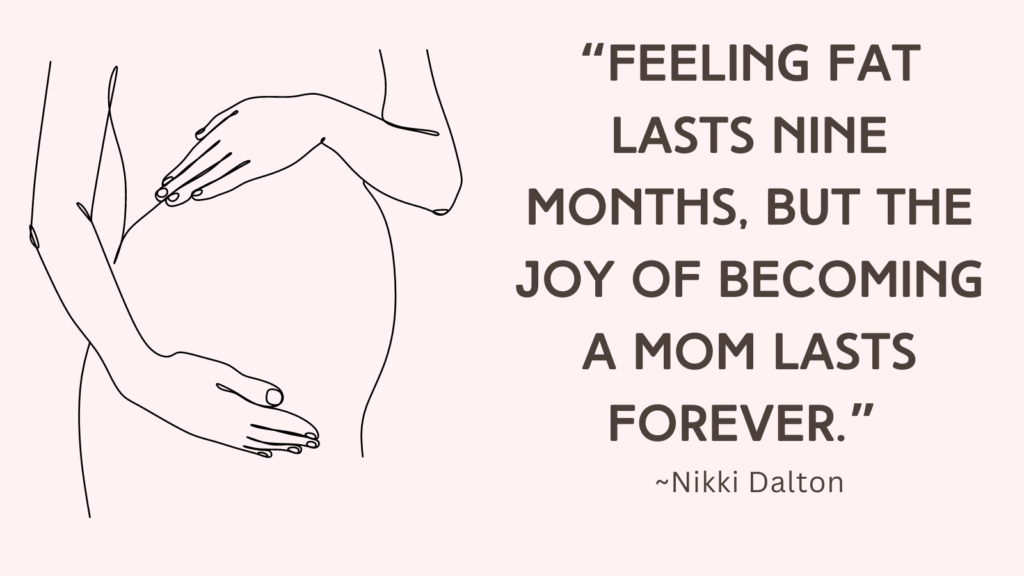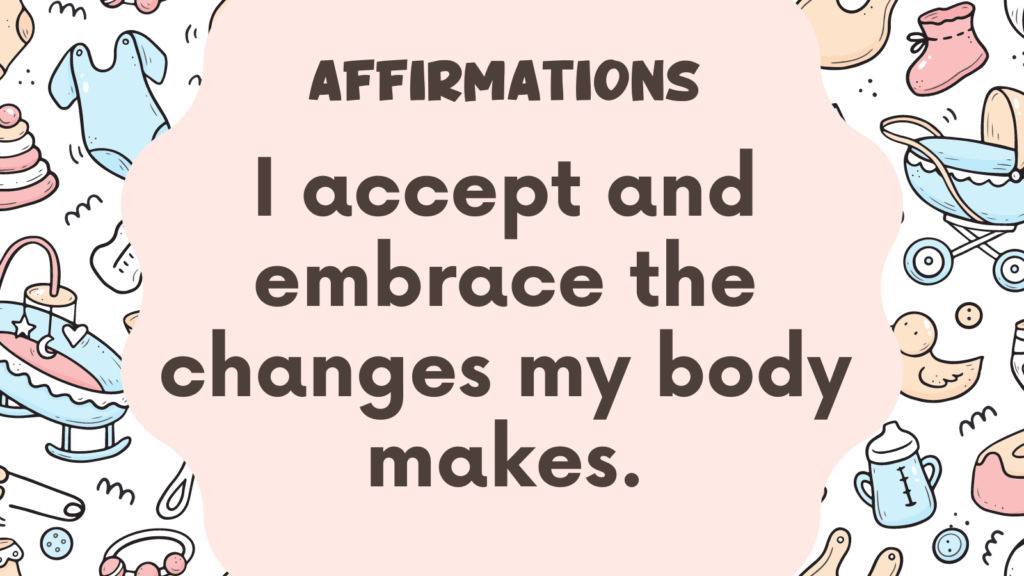In this post, you’ll learn all about what husbands should not do during pregnancy and what they should do instead.
Disclosure: Some of the links below are affiliate links. This means that, at zero cost to you, I will earn an affiliate commission if you click through the link and finalize a purchase.
What Husbands Should Not Do During Pregnancy
In general, husbands or partners should be supportive and understanding toward their partner during her pregnancy. They should avoid doing anything that could cause harm to their partner or unborn baby.
Here are some things to avoid doing during pregnancy:
#1. Getting Upset Or Angry When You Find Out About The Pregnancy
Becoming tearful, laughing, swearing, throwing up or even passing out when you find out that you’re going to become a father are all normal reactions to this life-changing event.
It’s also okay if your reaction wasn’t 100% positive.
However, your partner might not be so understanding.
It’s always better to react to the news with all the positivity you can muster. Later, you’ll have enough time to revisit any frustrations or concerns, once the news sink in.
#2. Smoking Or Using Any Form Of Tobacco
Secondhand smoke exposure happens when people breathe in smoke breathed out by people who smoke or from burning tobacco products.
Secondhand smoke exposure during pregnancy can harm both the mother and the developing fetus. It increases the risk of several health problems in the baby, including low birth weight (source), premature birth (source), respiratory problems (source), Sudden Infant Death Syndrome (SIDS) (source), and behavioral problems later in life. (source)
Pregnant women who are exposed to secondhand smoke also have a higher risk of complications such as miscarriage, early delivery, stillbirth, and placental problems. (source)
It is important to make sure that your pregnant wife or partner avoids exposure to secondhand smoke as much as possible.
#3. Exposing Your Partner To Harmful Chemicals Or Substances
Exposure to harmful chemicals or substances during pregnancy can be harmful to the developing fetus. (source)
Common harmful chemicals that you may be exposed to include: lead, mercury, pesticides, and certain cleaning products.
If you are unsure about the safety of a product, it is best to ask your healthcare provider.
Additionally, it’s essential to follow safety measures such as wearing gloves and a mask, washing hands frequently, and avoiding contact with toxic substances whenever possible.
#4. Engaging In Any Physical Activities That Could Pose A Risk To Your Partner Or The Baby
Any physical activity that could pose a risk to your partner or baby during pregnancy should be avoided. Here are a few examples:
1. High-impact exercises such as running, jumping, or intense aerobic activities can increase the risk of abdominal trauma or bleeding.
2. Contact sports such as soccer, basketball, or hockey can increase the risk of injury to the abdomen and uterus.
3. Activities that involve balance, such as gymnastics, horseback riding, or skiing, can increase the risk of falls and miscarriage.
4. Scuba diving can cause decompression sickness in the mother and the baby.
5. Hot yoga or any activity that raises the body temperature could lead to dehydration, overheating, and other complications.
It is always best to consult with your healthcare provider and get clearance before engaging in any vigorous physical activity during pregnancy.
#5. Neglecting Your Partner’s Emotional Needs
Pregnancy can be a challenging time for women, both physically and emotionally.
Hormonal changes, body transformation, and the anticipation of impending motherhood can all cause stress and anxiety.
As her husband or partner, it’s essential to offer your support, empathy, and understanding.
Listen to her concerns, offer to help, and provide comfort whenever possible. Additionally, consider attending prenatal appointments with her and participating in activities that can help you bond with your unborn child.
Remember that a strong partnership is essential during pregnancy and can have a positive impact on your child’s development.
#6. Criticizing Your Partner’s Body Changes
Your partner’s body is going through a lot of changes during pregnancy, and she may feel self-conscious or insecure.
Avoid making negative comments about her appearance or weight gain, as this can be extremely hurtful.
Related: Best 70 Pregnancy Hacks (+Products Recommendation)
What Husbands Should Do Instead
#1. Keep Meals Light On Seasoning
If your partner is experiencing nausea bland food may help soothe her symptoms.
#2. Suggest Morning Or Evening Walks
Being healthy isn’t just your partner’s responsibility.
When you also adopt healthier habits, you can support and inspire your partner.
Related: Best 7 Pregnancy Self Care Products
#3. Make Sure The Pantry Is Always Stocked With Healthy Snacks
Your partner’s appetite may increase or she may be pickier than normal during the first trimester.
Do a big grocery haul and keep your pantry stocked with your partner’s favorite food.
#4. Attend Prenatal Appointments
Although you’re not required to be at all the appointments, being there with your partner can make your partner feel supported and you will also feel more involved. If you have any questions, bring them with you.
Related: Top 11 Tips On How To Deal With Morning Sickness At Work
#5. Ask HR About Parental Leave
Speak with HR and find out about parental leave and any other postpartum benefits.
#6. Share Your Closet
If you are larger than your partner, offer some of your clothes.
She may find items like sweatshirts and oversized T-shirts especially comfy at home.
#7. Take Over The Heavy Lifting
Whenever you can, do the heavy lifting around the house and when you’re out doing errands.
#8. Offer Her Nightly Foot Massage But Not Ankles Massage
After a long day, your partner’s feet are likely swollen and achy.
A foot massage can help here.
Avoid pressing the inside and outside of both ankles as these are the reflexology areas directly connected to the uterus and ovaries and may encourage uterine contractions. (source)
#9. Draw Her A Warm Bath
A warm bath can help ease your partner’s muscle aches and help her distress.
Make sure the water is warm/close to body temperature (no more than 104°F (40°C)) but not hot to avoid overheating. (source)
Avoid bubbles, bath bombs, and special oils for the bath, but you may use Epsom salt. It will, not only ease aches and pains, but also help with hemorrhoids. (source)
Dissolve two cups of Epsom salt in your warm bathwater and let your partner soak in it for no more than 10 to 15 minutes.
You can find Epsom salt in most grocery stores and pharmacies. It’s also available online.
Related: Minimalist Hospital Bag Checklist (+Hospital Bag Checklist PDF)
#10. Listen to her
Listen to your partner. Talking about her emotions and expressing her thoughts will help her feel better and reduce her stress.
You don’t have to offer solutions. Simply listening and trying to understand her perspective can be all she needs.
Also don’t stop showing your partner affection. While she may not always feel up for physical intimacy during pregnancy, it’s still important to show her affection in other ways. Give her a hug, cook her favorite meal, or surprise her with a gift.
#11. Tell Her That She Looks Good
With the changes she’s going through, your partner may not feel confident. A compliment every now and then can make a big difference.
#12. Educate Yourself
Pregnancy and childbirth can be complex processes, and it’s important to educate yourself about what your partner is going through.
Attend prenatal appointments with her, read pregnancy books, and ask questions to be informed and supportive.
Related: Best Pregnancy Resources (Information, Apps, Books, Podcasts)
Pregnancy Books For Dads
#13. Control Your Anger
Your behavior and the words you use affect your children.
They also pick up their communication habits from you at a very young age.
Start revising your behavior now and get used to controlling your anger and swearing less.
#14. Spend Less Money On Nonessential Items
Raising kids is not cheap.
But spending less on nonessential items will also teach them financial responsibility.
Fatherhood Myths
There are many myths and misconceptions about new dads that can create undue stress and anxiety.
Here are some common myths and ways to debunk them:
Myth #1: Dads don’t bond with their babies as quickly as moms do.
This is simply not true.
While moms may have a biological advantage due to childbirth and breastfeeding, dads can bond with their babies just as quickly and strongly through regular interaction, caregiving activities, and quality time spent together.
Myth #2: Dads aren’t as nurturing or capable as moms.
This is another myth that has no basis in reality.
Dads are fully capable of providing love, care, and support to their children.
Both parents bring unique strengths and perspectives to raising a child, and it’s important to recognize and appreciate each other’s contributions.
Myth #3: Dads are only responsible for providing financially.
While providing for the family’s financial needs is important, dads also play a critical role in their children’s emotional and social development.
This includes spending time with them, engaging in activities, teaching them important life skills, and serving as a positive role model.
Myth #4: Dads can’t handle the same household tasks as moms.
Dads are fully capable of performing household tasks such as cooking, cleaning, laundry, and childcare.
It’s important to share responsibilities fairly and communicate openly about each other’s commitments and limitations.
Dealing With Fears of Fatherhood
Fatherhood can be an intimidating and overwhelming experience. It may trigger some fears and concerns.
Following are some common ones:
- Wondering if you’re ready to give up your present life including your freedom and free time to be a father.
- Wondering if you’ll ever enjoy good sleep.
- Wondering if having a baby will affect your relationship.
- Worrying about finances.
- Wondering if you’ll be a good enough dad and role model.
Here are some tips to help you deal with your fears of fatherhood:
1. Educate yourself – Read books, articles, and online resources about parenting and child development to help prepare yourself for fatherhood.
2. Acknowledge your feelings – It’s normal to have fears and doubts about becoming a father, so don’t try to push them away or ignore them. Instead, acknowledge and accept your feelings, and work to face and overcome them.
3. Communicate with your partner – Parenthood is a partnership, so communicate openly and honestly with your partner about your feelings and concerns.
4. Seek support – Talk to other fathers, family members, or friends who have children or are expecting. They may offer valuable advice and support.
5. Practice self-care – It’s important to take care of yourself physically and mentally during this time. Get enough sleep, eat well, exercise, and find ways to manage stress and anxiety.
Pregnant Dad Symptoms: Couvade Syndrome
Couvade syndrome, also known as sympathetic pregnancy or pregnancy symptoms in men, refers to a phenomenon where expectant fathers experience physical and emotional symptoms similar to those of their pregnant partners.
Symptoms may include nausea, weight gain, insomnia, mood swings, and even labor pains.
The exact cause of Couvade syndrome is not clear, but it is believed to be related to the psychological and emotional stress of impending fatherhood.
Whatever the reason, rest assured in the third trimester those symptoms will be coming to an end.
It is important to note that all expectant fathers do not experience this syndrome, and those who do may have varying degrees of symptoms.
Conclusion
Remember, being a father is a learning process and no one is perfect.
With patience, support, and a willingness to learn and grow, you can become a great father.
References
- Portions of this article were adapted from the book Pregnancy Hacks, © 2020 by Amanda Shapin Michelson. All rights reserved.
- P. M. Prince, M. Umman, F. N. Fathima, and A. R. Johnson, “Secondhand smoke exposure during pregnancy and its effect on birth outcomes: Evidence from a retrospective cohort study in a tertiary care hospital in Bengaluru,” Indian journal of community medicine : official publication of Indian Association of Preventive & Social Medicine, 2021. [Online]. Available: https://www.ncbi.nlm.nih.gov/pmc/articles/PMC8117891/.
- M. Wu, G. J. Williams, G. Chen, L. Zhang, C. Hu, X. Dai, W. Du, and J. Hua, “Prenatal second-hand smoke exposure and the risk of suspected developmental coordination disorder in preschoolers: A nationwide retrospective cohort study in China,” Frontiers, 24-Oct-2022. [Online]. Available: https://www.frontiersin.org/articles/10.3389/fpubh.2022.993471/full.




